by Joe Carpenter, PT, DPT, Clinic Manager in East Tennessee Region
Pain is the body’s natural way of informing us that something is wrong and needs to be fixed.
September is Pain Awareness Month! Pain is a phenomenon that all of us are familiar with. We have all stubbed a toe, had a random ache or pain, or have had an injury at some point in our lives. Pain is the body’s way of informing us that something is wrong and that it needs to be fixed. Pain occurs when the body recognizes an injury and sends inflammation into a region to begin a healing process. The unfortunate aspect is that the body also sends chemically irritating substances along with the inflammation to attempt to tell us that we need to protect that area while the healing process is taking place. Typically, once the healing process is completed and the inflammation and chemical irritants move from the area, we no longer experience pain. This is the ideal scenario and individuals can then go about their daily activities as usual. Bones heal, strains resolve, and sprains will regain structural strength overtime as part of this natural process.
Often times, individuals with pain that is not naturally resolving are left seeking answers. We are made to move and it is essential that we can move pain-free to complete our activities of daily living, are able to work, and be attentive to familial duties. When pain does not resolve, individuals can be affected both physically and psychologically. When pain persists, individuals may also have compounding psychological effects such as depression, anxiety, and fear. Luckily for these individuals there is hope and pain-relief may be right around the corner. Below we are going to discuss a few common pain management strategies and why physical therapy should be considered early in the process of managing pain.
Pharmacological Strategies
Prescribing medication exists to decrease pain through chemical interaction and modifying the body’s response to injury. Listed below are a few of the most common pharmacological interventions:
- Anti-inflammatories: Anti-inflammatories exist to reduce the body’s inflammatory response to injury. By reducing the inflammatory response, the chemical mediators are diminished and the pain signals are decreased in intensity. The idea of anti-inflammatory use is to improve the ability to tolerate pain while the body is going through a natural healing process. In most cases, Non-steroidal anti-inflammatory medication is typically the first line of treatment. If the case is severe enough, doctors may prescribe steroidal anti-inflammatories as a way to quickly decrease this inflammatory response. The unfortunate thing about these medications is they do come with negative side effects and do not address the structural problems. When the structural problems are not addressed, individuals are often left in pain when the medication is out of the body.
- Muscle relaxers: Muscle relaxers are often prescribed when soft tissue injury or “tightness” are thought to be leading to pain. Muscle relaxers are designed to decrease the body’s guarding ability and to provide pain-relief by relaxing irritated tissues and allowing the tissue to calm down during the healing process. Once again, this is a passive intervention and does not directly address the structural issue at hand.
- Opioids: Opioids are a last line of defense in pain management. Opioids have a high addictive capacity and many states are introducing strict legislation. Opioids work by blocking pain signals to the brain. Opioids also do not have any ability to structurally repair the injured structures, and long –term use can have very detrimental effects to one’s health and quality of life.
Surgical Intervention
Once pharmacological interventions have failed, often surgery is indicated. Surgery often fixes the issue at hand, but there are many costs and risks associated with surgery. Failed surgeries and serious complications are a reality anytime surgery is on the table. Also, even with insurance, individuals are left with large financial burdens.
Physical Therapy
Luckily for patients in pain, there is another option! Physical therapists have extensive training in anatomy, physiology, kinesiology (the study of movement), and differential diagnosis. Physical therapists are the movement experts! Physical therapists are able to perform evaluations on patients and provide interventions that may help to decrease pain, improve quality of life, and improve overall functional status. Physical therapy does not come with the negative side-effects that many medications have. Physical therapy can save patients money by eliminating the need for unnecessary testing and imaging, doctor’s visits, and also preventing unnecessary surgeries.
Direct Access to Physical Therapy: In the U.S., direct access is now available! With direct access, patient’s can choose physical therapy first! Physical therapists are trained at a Doctoral level to be able to identify what patients are appropriate to be seen and what patients need to follow up with MDs. There is also abundant research on the benefits of therapy for treating back and neck pain, sprains and strains, joint pain, and even tendon tears!
Physical therapy is an evidence-backed, proven method to eliminate or reduce pain, restore function, and improve quality of life! Next time you are injured, remember to choose Physical Therapy first!
Do more than mask the pain in pain management. Eliminate it by choosing physical therapy over opioids and other pain management options to achieve the best results for your health. Talk to one of our licensed CORA therapists to see what they can do for you at more than 200 conveniently located clinics.
